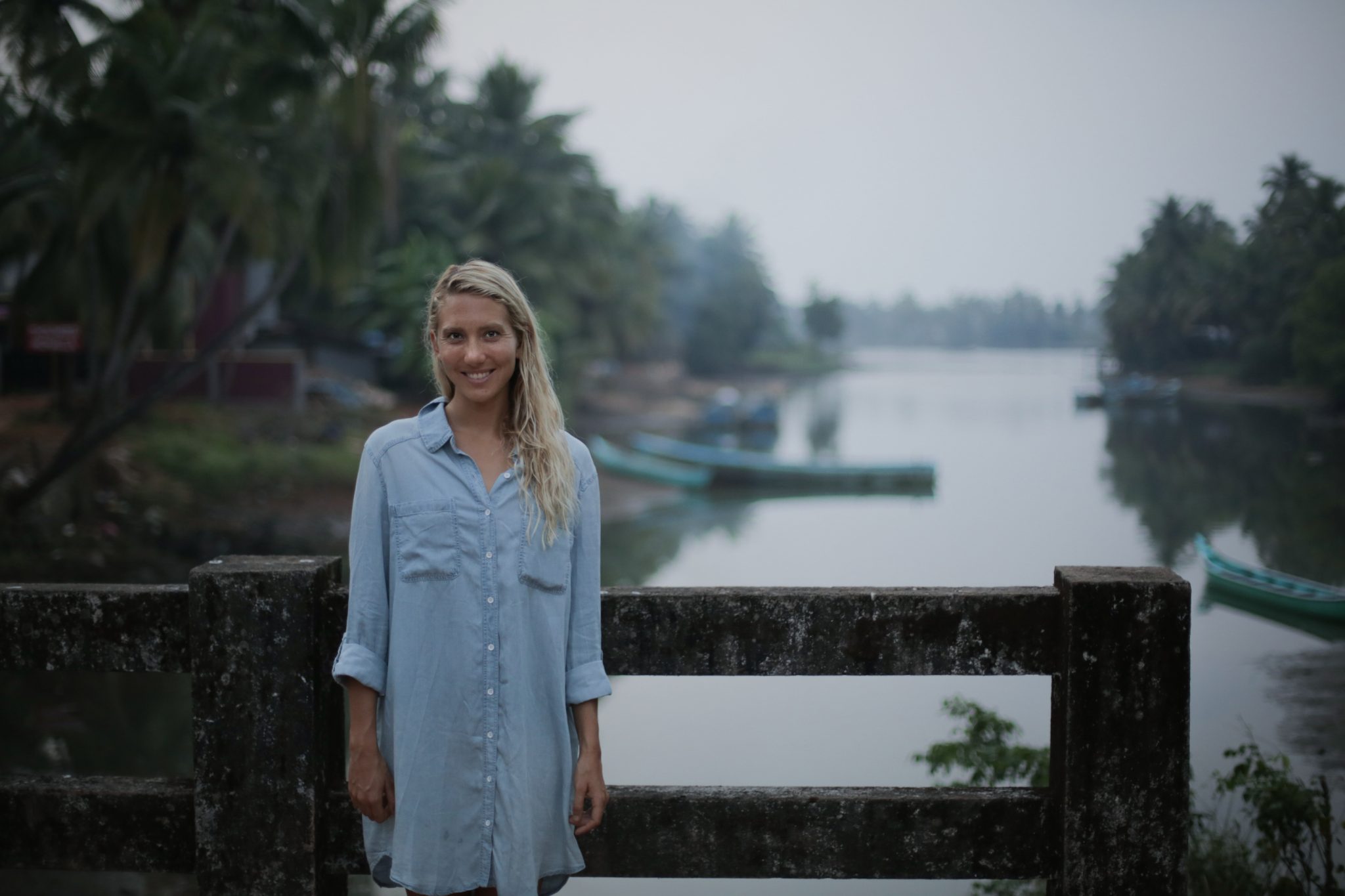
Country: Peru
Emi Koch is a marine social-ecologist, Fulbright Fellow, and National Geographic Explorer from San Diego, California. As a former professional surfer, Emi used her sponsorship with Billabong to start Beyond the Surface International (BTSI), a community-based, nonprofit organization working in solidarity with small-scale fishing villages to support social-ecological wellbeing and build resilience through surfing, storytelling, and mindfulness workshops that engage youth and their communities for healthy seas and sustainable, secure, bright futures. For the past 11 years, Emi has lived and worked with isolated and marginalized small-scale fishing communities in mainly Peru, India, Indonesia, and Vietnam to support local-led solutions for marine conservation, sustainable fisheries, climate change adaption, and waste management. In 2019, Emi graduated with a Masters in Marine Biodiversity & Conservation from the Scripps Institution of Oceanography. She did her undergraduate work at Georgetown University in Psychology with focuses in Anthropology and Justice & Peace Studies. Emi is based in Lobitos, a small-scale fishing village along Peru’s Tropical Pacific Sea. She aspires for a global society that considers access to a healthy environment as a fundamental human right.
Q. Tell us a bit about your work.
Through play, creativity, and science, we engage youth from SSF villages to address critical social and ecological issues impacting their communities and marine environment. These issues include overfishing, IUU fishing, gender-based violence, pollution, sea-level rise, substance abuse, destruction of critical habitats, WASH, irresponsible coastal development, and cultural erosion. We leverage surfing as a powerful relationship-building tool with oneself, our peers, and surroundings. Surfing cultivates both inner and outer strength and engages kids as stewards for their aquatic environments, cultural heritage and wellbeing. Through Beyond the Surface’s media arts series, Coast 2 Coast, we facilitate participatory audiovisual workshops for youth to use their voices to celebrate their community’s strengths, identify changes, daylight struggles, and promote locally-driven solutions to adverse social and ecological injustices in a changing climate and industrializing planet. We also facilitate mindfulness practices as an approach to nonviolent communication. Through partnerships, we work to implement solutions together for healthy, happy coastal communities and small-scale fisheries.
2.What are you currently working on within the context of small-scale fisheries?
I'm currently working on several projects through our nonprofit. The first is "Festival Somos Mar," a participatory media arts festival for ocean health and community wellbeing that tours local schools in historically marginalized fishing villages along Peru's Tropical Pacific Sea. This unique ecoregion supports one of the world's largest fisheries – accounting for nearly 20 percent of global fish stocks and over half of Peru's seafood consumption. Yet without legal protection, Peru's northern coastline faces enormous threats. Over 16,000 SSF actors practice artisanal and very selective fishing practices that are threatened by illegal and commercial fishing, most notably bottom trawling, as well as oil exploration and extraction. Together with my partner, we led a multidisciplinary team that works with local students to highlight these challenges from their perspectives through photography, stop-motion animation, street art, and storytelling workshops. Through their own stories, youth communicate within and beyond their communities about ocean justice, merging traditional knowledge and scientific data. We also seek to reach policymakers to best implement solutions according to the SSF Guidelines. We hope to facilitate our second annual festival next year once it is safe to do so.
Our second project is "Mapa de Voces Marino Costeras" (MVMC), an interactive web documentary that brings together and presents artistic and audiovisual products created by youth from SSF communities worldwide. The project seeks to connect these stories and bring them to global audiences to better understand the oceans from SSF youth's perspective, amplifying their voices, addressing challenges and championing SSF strengths.
Lastly, although my Fulbright-National Geographic Storytelling fellowship in Vietnam was unfortunately cut short due to COVID-19, I'm continuing to analyze data from the PhotoVoice or participatory photography workshops facilitated with my Vietnamese colleagues and fish-dependent communities along the South-Central coast. I am also editing the short videos co-created with SSF actors in Vietnam to share how fishery scarcity in concert with environmental stresses such as growing populations, pollution, extreme weather events, and coastal development critically undermine human security and environmental sustainability. The goal is to transmit this information through publications such as National Geographic.
3. If you could single out one or two most significant factors for securing sustainability of small-scale fisheries, what would these factors be?
First, addressing corruption and regulatory compliance, and second, securing access to local, regional, and national markets — these are the two most significant factors for securing SSF sustainability that fish-dependent families we work with single out. Most feel disheartened by the lack of government oversight and follow-through to protect SSF rights and ensure industrial fleets obey regulations. I think this is the basis for ensuring that everything the SSF Guidelines outlines and every sustainability measure governments have already enacted are implemented effectively to ensure SSF communities' social-ecological well-being. The second factor that SSF families isolate as a critical factor is market access. Even in a fishing village frequented by water sports athletes, the fish served at hotel restaurants are sourced from regional port cities rather than the local pier. SSF actors complain that they are undervalued, and therefore, their capacities are left underfunded and overlooked.















